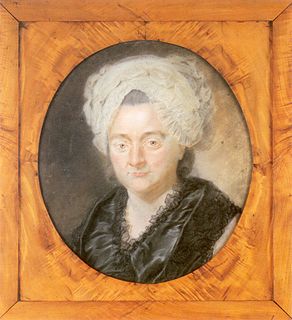A Quote by Karl Wilhelm Friedrich Schlegel
Wit is the appearance, the external flash, of fantasy. Hence its divinity and the similarity to the wit of mysticism.
Quote Topics
Related Quotes
In England, wit is at least a profession, if not an art. everything becomes professional there, and even the rogues of that islandare pedants. So are the "wits" there too. They introduce into reality absolute freedom whose reflection lends a romantic and piquant air to wit, and thus they live wittily; hence their talent for madness. They die for their principles.
There is, however, in art another kind of external similarity which is founded on a fundamental truth. When there is a similarity of inner tendency in the whole moral and spiritual atmosphere, a similarity of ideals, at first closely pursued but later lost to sight, a similarity in the inner feeling of any one period to that of another, the logical result will be a revival of the external forms which served to express those inner feelings in an earlier age.
What are the precise characteristics of an epigram it is not easy to define. It differs from a joke, in the fact that the wit of the latter dies in the words, and cannot therefore be conveyed in another language; while an epigram is a wit of ideas, and hence, is translatable. Like aphorisms, songs and sonnets, it is occupied with some single point, small and manageable; but whilst a song conveys a sentiment, a sonnet a poetical, and an aphorism a moral reflection, an epigram expresses a contrast.




































